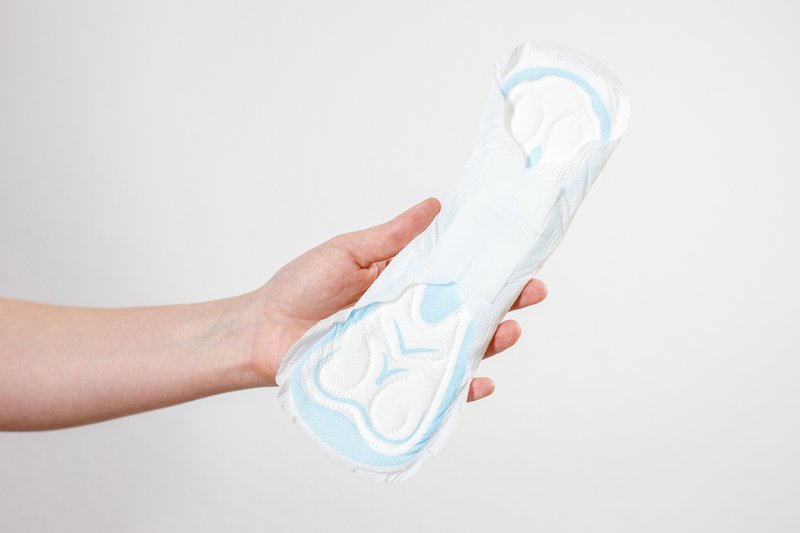Sustainable Menstrual Products: The Best Eco-Friendly Alternatives to Pads and Tampons

Menstrual products like pads and tampons have long been the go-to options for managing periods, but with increasing concerns about waste and environmental impact, many are turning to more sustainable alternatives. These eco-friendly menstrual products not only reduce the amount of plastic waste but also provide healthier options for the body. In this article, we’ll explore the best sustainable alternatives to traditional pads and tampons, how they work, and the benefits they offer both for the environment and your health.
Why Sustainable Menstrual Products Matter
The environmental impact of traditional menstrual products is significant. An estimated 45 billion tampons and 20 billion sanitary pads are used globally each year, with most ending up in landfills. These products take hundreds of years to break down, contributing to the growing problem of plastic pollution. Additionally, many conventional products contain chemicals, synthetic fibers, and plastics that may irritate the skin or disrupt hormonal balance.
As more people seek to reduce their carbon footprint and embrace sustainable living, there has been a rise in eco-friendly menstrual products. These alternatives not only help reduce waste but are often made with natural, organic materials that are better for the body and the planet.
Top Eco-Friendly Alternatives to Pads and Tampons
Menstrual Cups
Menstrual cups are a popular, reusable alternative to tampons. Typically made of medical-grade silicone, rubber, or elastomer, they are inserted into the vagina to collect menstrual blood. One menstrual cup can last for years, making it a cost-effective and eco-friendly option. They are also easy to clean and, when used correctly, can be worn for up to 12 hours at a time.Benefits:
Reusable and long-lasting
Reduces waste significantly
Comfortable and discreet
Safe and non-toxic
Reusable Cloth Pads
Reusable cloth pads are made from organic cotton, hemp, or bamboo fabrics and can be washed and reused for several years. These pads function similarly to disposable ones, but they don’t contribute to landfill waste. They come in various sizes and absorbencies, making them suitable for different flow levels.Benefits:
Soft and breathable
Non-toxic and chemical-free
Available in various sizes and designs
Washable and durable
Period Underwear
Period underwear, also known as period panties, is a comfortable and sustainable alternative that absorbs menstrual blood directly. These underwear are designed with built-in absorbent layers and moisture-wicking fabrics. They can be worn alone or as a backup to a menstrual cup or tampon.Benefits:
Comfortable and discreet
Can be worn throughout the day or overnight
Washable and reusable
Eco-friendly and highly absorbent
Organic Cotton Tampons and Pads
For those who prefer the convenience of disposable products, organic cotton tampons and pads are a more eco-friendly choice. Unlike traditional pads and tampons, organic cotton options are free from chemicals, pesticides, and synthetic fibers, making them safer for the body and the environment.Benefits:
Free from harmful chemicals and pesticides
Biodegradable and compostable
Hypoallergenic and gentle on the skin
Eco-friendly packaging
Sea Sponge Tampons
Sea sponge tampons are natural, biodegradable sponges harvested from the ocean. They are inserted into the vagina to absorb menstrual blood, much like traditional tampons. Sea sponge tampons can be reused for several cycles, as long as they are cleaned properly.Benefits:
Made from natural materials
Biodegradable and compostable
Reusable and eco-friendly
Gentle on the body
Menstrual Discs
Menstrual discs are similar to menstrual cups but have a different shape and design. These discs are inserted into the vagina to collect menstrual blood and can be worn for up to 12 hours. They sit at the base of the cervix, providing a secure fit and reducing leaks.Benefits:
Reusable and long-lasting
Comfortable and leak-proof
Can be worn during physical activity or overnight
Non-toxic and made from medical-grade silicone
How to Choose the Right Sustainable Menstrual Product
Choosing the right eco-friendly menstrual product depends on personal preferences, lifestyle, and comfort. Here are some factors to consider:
Flow: If you have a heavy flow, you may prefer a menstrual cup, reusable pad, or period underwear that can accommodate more absorption.
Comfort: If you prefer something internal, menstrual cups or discs may be more comfortable for you. If you prefer something external, reusable cloth pads or period underwear might be a better fit.
Convenience: For those on the go, menstrual cups or period underwear may be more convenient, as they require less maintenance compared to reusable pads.
Cost: Although the upfront cost of sustainable products can be higher, they save money in the long run since they are reusable.
Conclusion: A Greener Period
Switching to eco-friendly menstrual products is one of the easiest ways to reduce your environmental footprint while also supporting your health. By choosing sustainable alternatives like menstrual cups, reusable pads, period underwear, and organic cotton products, you are making a conscious choice to protect both the planet and your body. While it may take some time to adjust to these new options, the benefits are well worth it. So, next time you’re shopping for menstrual products, consider making the sustainable switch—it’s a small change that can have a big impact.
Date: 2024-12-23
Author: Nazmul Shishir
Tags: sustainable menstrual products, eco-friendly period products, menstrual cups, reusable pads, period underwear, organic cotton pads, green period solutions, eco-friendly tampons, menstrual health, waste-free period options